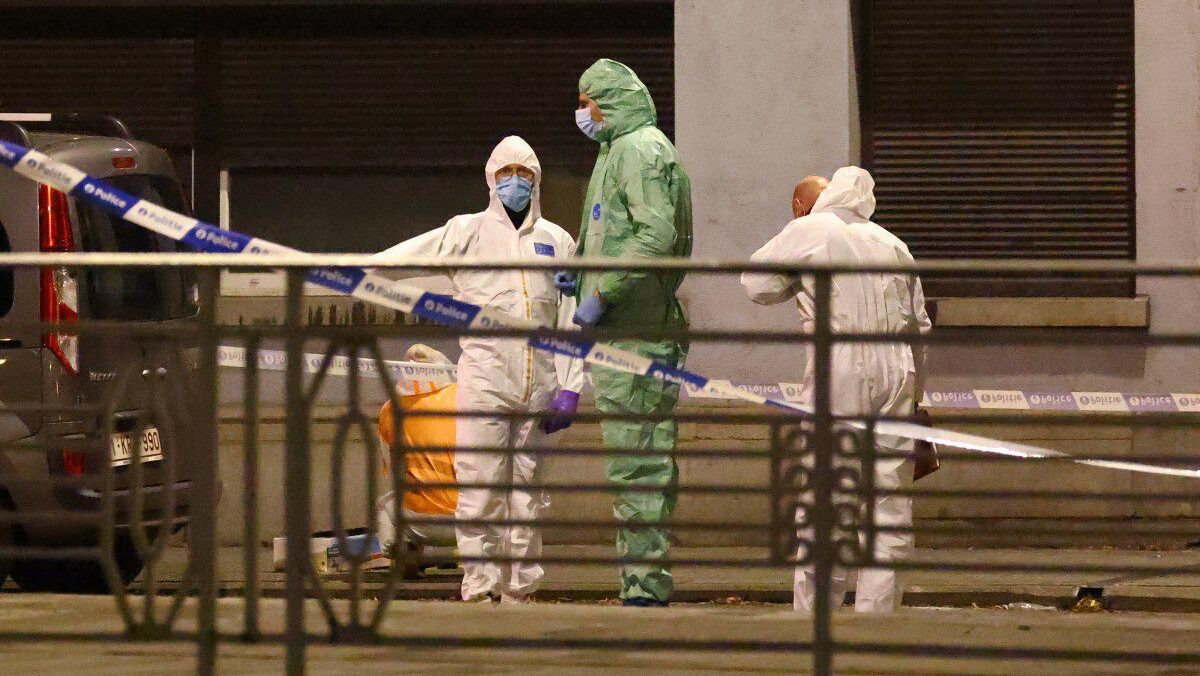
Belgian police officers from the forensic service search for evidence in a street after two people were killed during a shooting in Brussels on October 16, 2023.
Photo: Kenzo TRIBOUILLARD / AFP
The alleged Islamist terror attacker who killed two Swedish nationals on Monday, October 16th in Brussels before being shot on Tuesday morning in Schaerbeek by police, is believed to have spent an extensive amount of time in Italy before settling in the Belgian capital despite having his asylum claim rejected in 2020.
Abdesalem Lassoued, who is originally from Tunisia, has been known for his radical Islamic beliefs since at least 2016 when he was flagged by Tunisian authorities and first arrived in Belgium in 2019 where he applied for asylum.
According to the newspaper 7sur7, he had also previously attempted to claim asylum in Italy, Norway, and Sweden but was rejected by all of the countries.
After his failed attempt at claiming asylum in Belgium, Lassoued appears to have travelled across parts of Italy in 2021 after he disappeared from the Belgian national register in February of that year, Il Giornale reports.
According to the Italian newspaper, the alleged terrorist spent time in Genoa and Bologna, with evidence of his travels being posted to Facebook where he used the name “Slayem Slouma.”
The Facebook account was also where Lassoued posted videos following Monday’s killings in which he explained his allegiance to the Islamic State terrorist group and why he specifically targeted Swedish people, killing them with an automatic rifle.
It is currently unknown whether or not Lassoued acted completely alone but Il Giornale has claimed that earlier this year he was flagged for terrorism after a report from a resident of an asylum home near Antwerp who complained to Belgian police that Lassoued had already been convicted of terror offences in Tunisia.
However, Belgian authorities investigated the complaint and claimed that while Lassoued did have prior criminal convictions in Tunisia, they were not directly related to terrorist activities.
The Brussels attack is just the latest act of terror to be carried out by a Tunisian national in Europe in recent years.
In 2016, Tunisian Anis Amri stole a truck and rammed it into a packed Christmas market in Berlin, killing a dozen people and leaving over 50 others injured.
Amri, like Lassoued, was a failed asylum seeker and also had been on the radar of German police due to his links to radicalism. After committing his terrorist attack, Amri fled to Italy, where he was shot dead by police in Milan. Amri also claimed allegiance to the Islamic State and its former leader Abu Bakr al-Baghdadi.
Another Tunisian, Brahim Aouissaoui, was the author of a terror attack in Nice, France at the city’s Basilica in which he killed three people in October of 2020.
Aouissaoui came to Europe illegally by boat, landing on the island of Lampedusa before transiting through Italy to France where he initially wanted to take a train to Paris to carry out an attack near the Eiffel Tower but was unable to afford a train ticket to reach the French capital.
All three cases highlight the threat of radical Islamic terrorists using illegal immigration to reach Europe and carry out attacks.
In 2021, French Interior Minister Gerald Darmanin noted that over 1,000 illegal immigrants were on France’s Terrorist Radicalisation Prevention Report Index (FSRPT), one of the country’s anti-terrorism watchlists.
